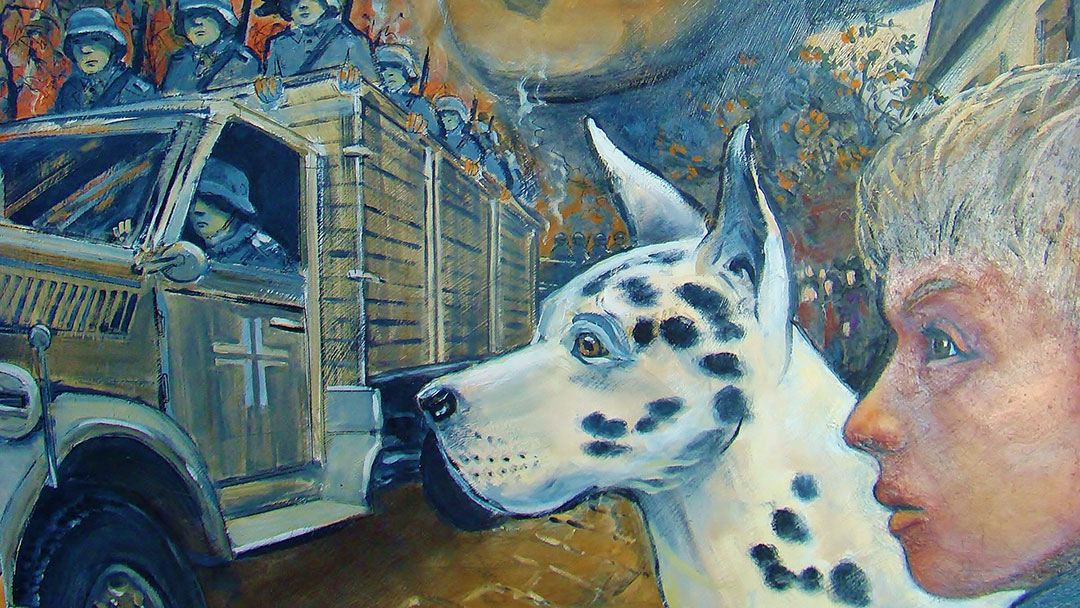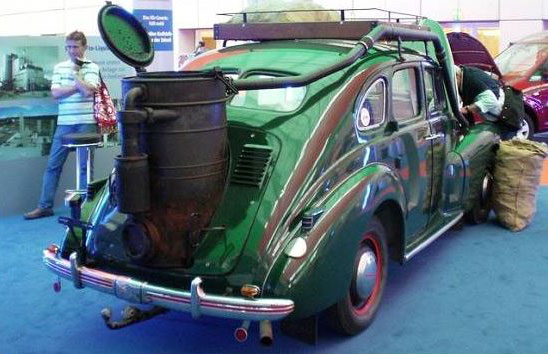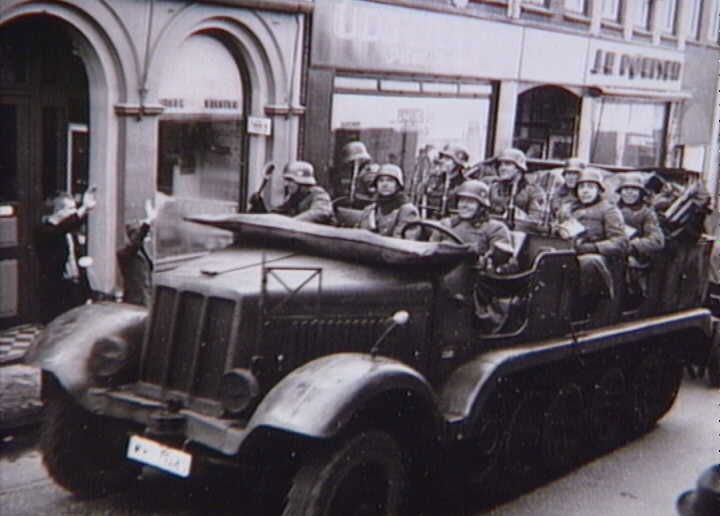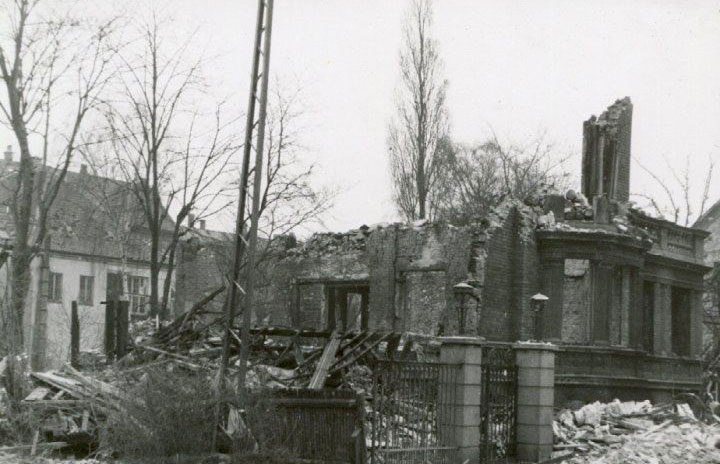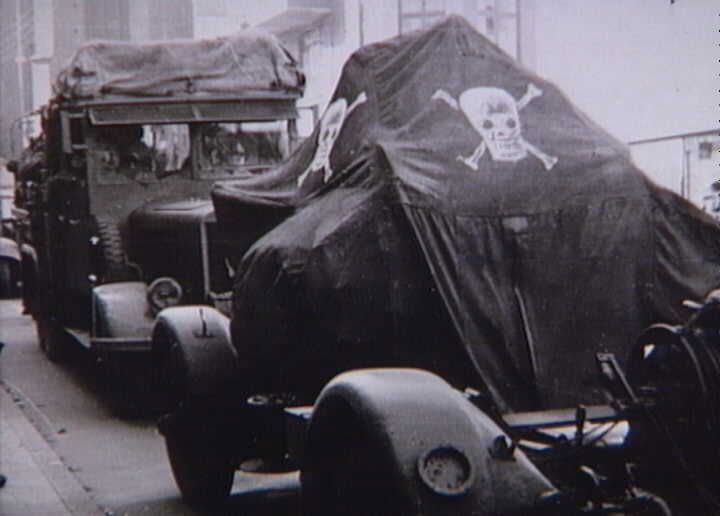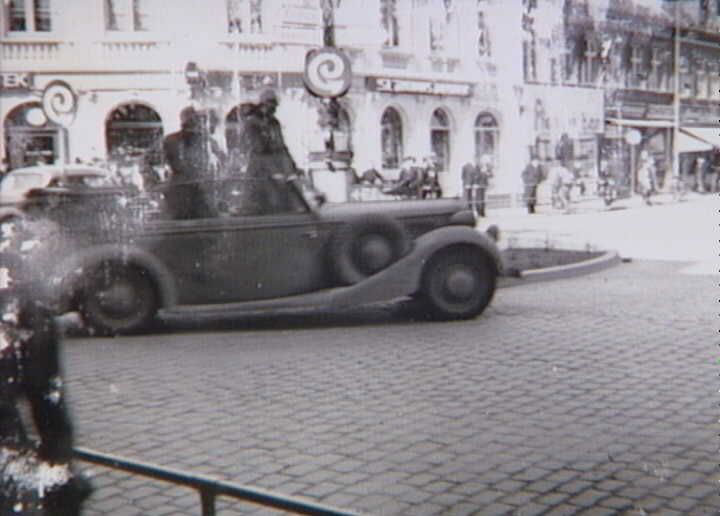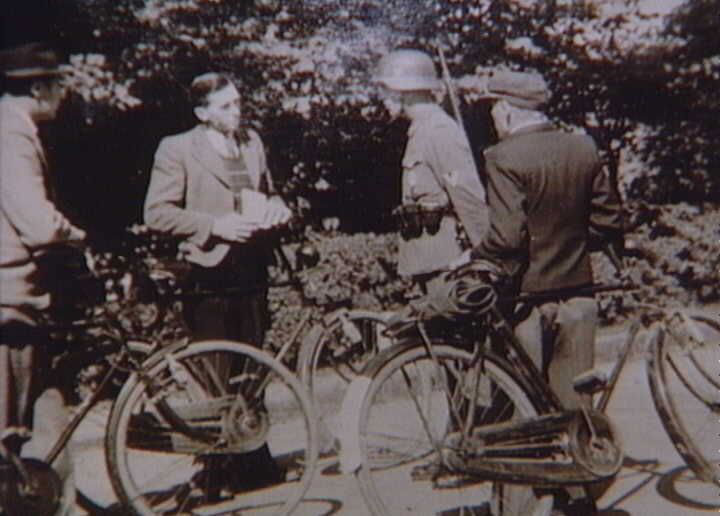Pre-publication excerpt from Chapter 30 of The Storks came Back
Excerpt from chapter 30, The Storks came Back
He had just placed the set of cups on the next cow and was about to sit down with the previous one to squeeze out by hand the last drops of milk, when he heard angry voices. The noise came from the tiled milking parlor where the milk was collected and cooled before shipping.
Morten rushed off to the milking parlor to learn what the noise was about. He found Jost Jonsen standing in the middle of the floor, waving his hands in despair at a group of German women. Half a dozen refugees crowded around the freshly filled milk-cans. They refused to move aside for Jost, who was trying to place the full milk-cans into the large water-cooled collection basin near the door. The women began to lift the lids off and tried tipping the full cans to pour milk into an assortment of pots and pans they had brought.
In the scuffle they pushed over two of the milk-cans, spilling the contents into the floor drain. The women fell silent. Wide-eyed they watched the milk gurgling down the drain.
Uncle Holger, alerted by the tumult, came over from his office in the main building. He ordered the women outside. Some were crying, while others shouted with anger. Out in the farmyard he gave them a stern talking to in German.
By now most women were sobbing. Morten looked at their harrowed faces, shabby clothing and worn-out shoes, and he felt sorry for them. One woman stared at him with red-rimmed eyes, her face caked with dried tears. Suddenly she rushed over to give him a hug. After a moment’s surprise, Morten pulled free. He bolted to a safe distance, his mind in turmoil with feelings of pity and disgust all at once. He would always remember the feel of the woman’s embrace, her skeletal arms and shoulders clothed in thin rags, the shifting sharp-edged bones of her torso almost ready to poke out, and the sour odour clinging to skin, hair and clothing after weeks of living without enough water and soap to keep up personal hygiene.
The women drifted back to their quarters in the gym. Uncle Holger, his blue eyes darkened to the shade of rain clouds, watched them go. He placed an arm around Morten’s shoulders.
“Sometimes,” he said, “it is hard not to cry over spilt milk.”
This chapter is based on the following memoir:
Crying over spilt milk
By Hans Larsen
The times were tense. School came to an end after the (last available) substitute teacher suffered a breakdown. To keep me occupied and out of trouble, I was recruited to help the herdsman of the college farm looking after sixty cows, their calves, and a mob of perpetually hungry bacon pigs. The herdsman, Ole, did most of the work with the milking machines, leaving it to me to carry the buckets with foaming milk down to the tiled dairy-room. There I sent the milk through a filter into water-cooled jugs and returned the empty machine-buckets to Ole. One afternoon just as I shifted one of the milking contraptions over on top of another empty bucket, I spotted a handful of refugee women shouting with anger, pushing into the dairy-room, supposed to be strictly off-limits to the refugees. Ole couldn’t run from what he was doing, so I ran down to the intruders in the milking-room and pointed to the door. Needless to say, the women remained where they were, shouting “milch, milch, milch” and lots of other things I didn’t understand. Meanwhile Ole saw his chance to come down and join the fracas, shaking his head and pointing to the door energetically. No way! Two women teamed up to lift a full jug of milk out of the cooling basin, took the lid off and emptied the milk on the terrazzo floor, sending 50 liters of fresh milk down the drain. Ole stepped in front of the other jugs prepared to defend them with his life. He yelled at me to get hold of my uncle, the college principal, and I rushed to the office with the upsetting news. Together we ran to the dairy-room, arriving just in time to prevent the women from overpowering Ole. They stopped what they were doing and broke out crying. My uncle remained silent. He just stood there, looking with sad eyes at the women and the milk-drenched floor. The women wiped the tears off their faces and headed with sagging shoulders back to their assigned quarters.
“There are times,” my uncle said, watching the women disappear, “when it really isn’t any good to cry over spilt milk.”
Ole muttered, “Whatever happened to the daily milk-allowances the refugee administration hands out? That wasn’t enough?” Thoroughly riled, he added, “Those wretched Prussians! First they claimed to need more ‘lebensraum,’ then they stole our freedom, and now they come to waste our milk! What will be next?”

